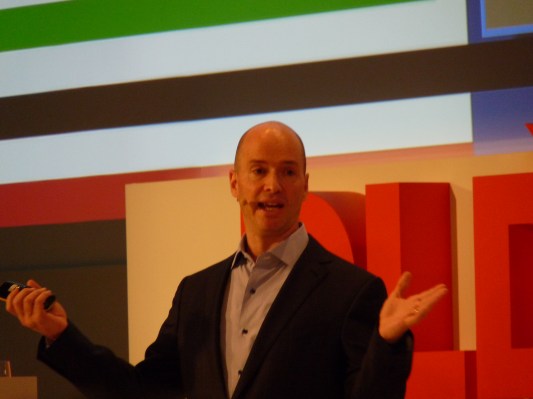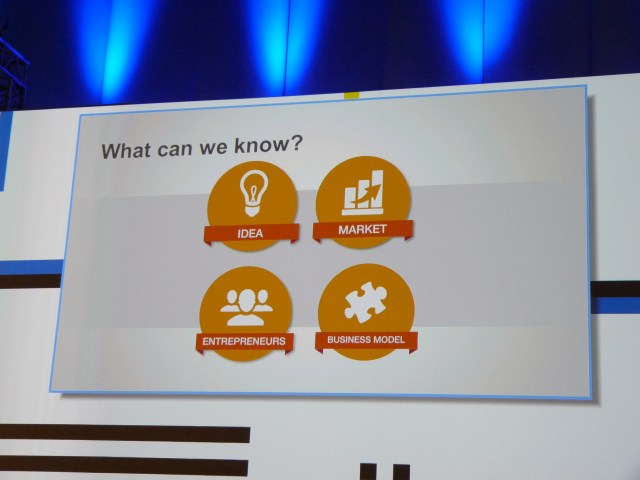At the DLD conference in Munich today, venture capitalist Ben Horowitz took the stage to discuss why he and his firm Andreessen Horowitz invest in a company and its founders. Last year, he said, Andreessen Horowitz found 2,355 companies that were potentially worth investing in that passed the company’s initial screen. In the end, Andreesen Horowitz only closed 24 deals (excluding seed deals). The companies that made it, he cheekily argued, are those started by “college dropouts with insane ideas going after tiny markets with no way to monetize.”
Talking about crazy ideas, Horowitz noted that in 1975, software wasn’t something people would invest in because it always came with the computer. The market was too small, you couldn’t sell it yourself and most people thought something like Altair Basic wasn’t a viable product. Still, that’s what Microsoft essentially did. In 1998, web search was considered to be a bad idea and investment because most of the search companies that had already launched weren’t able to make any money, yet Google figured it out. Other examples of companies that started with a bad idea that then turned into a major company noted by Horowitz were the Odeo podcasting service that turned into Twitter and Burbn, which turned into Instagram.
An idea that gets funded, he noted, has to be a breakthrough idea. It has to be an order of magnitude better than what is currently available. The problem, however, is that those breakthrough ideas – by definition – look like they are insane. Even the smartest people will pass on great companies because they know too much about the old paradigm that they can’t comprehend the breakthrough. Airbnb, for example, sounds like a crazy idea – even the name, he noted, sounds like it’s a bad idea. Now, more people rent Airbnb hotel rooms in New York than Hilton hotel rooms.
The key characteristic to look for, says Horowitz, is an incredibly brilliant entrepreneur with a seemingly berserk idea. Who are these great entrepreneurs? Using the college droputs Mark Zuckerberg, Steve Jobs, Larry Ellison and Bill Gates as his examples, Horowitz said that what he looks for are brilliance, courage and a breakthrough idea. Unless you have the brilliance to pursue it, you don’t get into college and unless you have courage and a breakthrough idea, you don’t drop out (though I think Horowitz was really talking about elite colleges here).
Horowitz also noted that even though Silicon Valley is often accused of having great ideas but problems with coming up with good business models, Horowitz argued that companies like Amazon, Facebook, Twitter and others were often underestimated in the beginning and that many analysts believed they could never turn into profitable businesses. All of these ideas initially looked crazy and impossible to monetize, yet all of these companies eventually figured it out.

